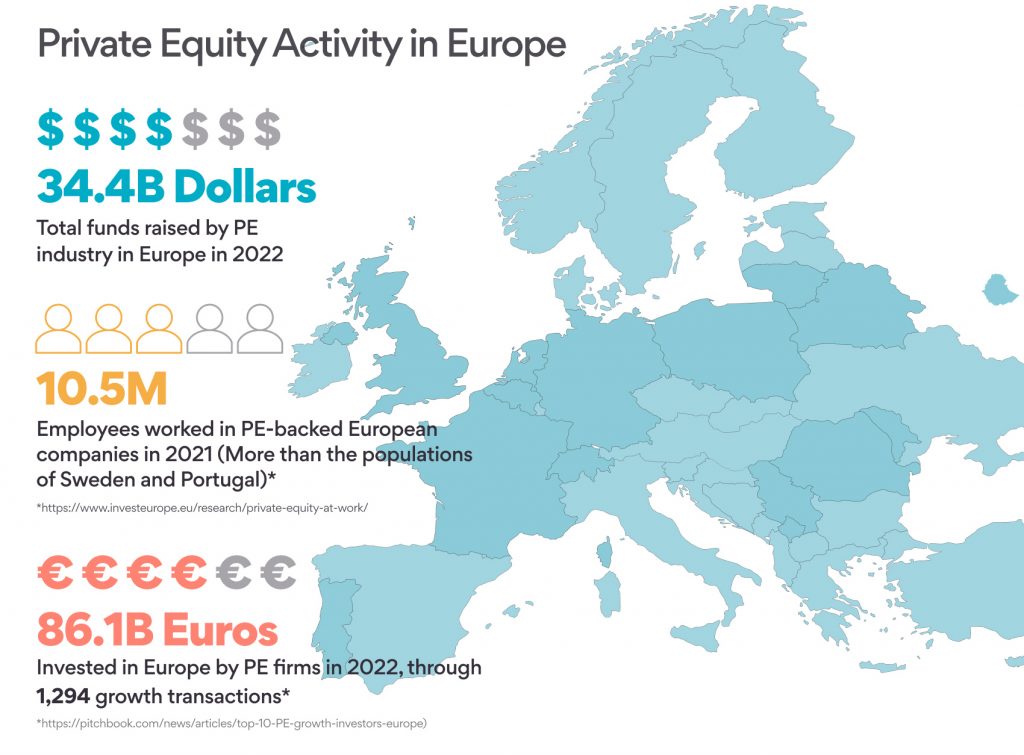Establishing a Global Technology Centre (GTC) or Offshore Development Centre (ODC) is a common strategy of many global businesses. However, many large-scale organisations and Independent Software Vendors (ISVs) across Europe are increasingly embracing this trend in the post-pandemic era. There are numerous benefits of offshore development centres, including access to a global talent pool, faster time-to-market, improved security, fostering a global-team mindset, promoting transparency, ensuring complete ownership of processes, IT cost optimisation, facilitating multiple in-flight releases, and market expansion, especially in the face of talent shortages.
GTCs also provide flexibility, scalability, and round-the-clock availability in software development processes.
This might be one of the reasons why Ergo Group, a German insurance company, launched its third tech hub in India. By leveraging cutting-edge technologies and talent pool from India, Ergo Group will enhance the operational capabilities of its ERGO Technology & Services Management AG (ET&SM) unit and aims to become a leading tech-driven insurer by 2025. Royal DSM, a leading Dutch health, nutrition, and materials corporation, expanded its presence in India by opening a new office as part of its GTC strategy for client deliveries, driving standardisation, resilience, quality, and excellence. Henkel, a leading German chemical and consumer goods company, established a new office in India for leveraging scaling capabilities and speeding up time-to-market.
New-age Economy Driving GTCs for Both Enterprises and Software Vendors
The growth of remote employment and the gig economy has facilitated global expansion of European businesses, both large corporations and ISVs. It has provided an ideal environment to adopt the GTC model, which lowers talent and macroeconomic risks. Companies find the GTC model particularly attractive for software development, technical support, testing and quality assurance, project management, and design.
However, there are notable differences in the objectives and priorities of enterprises compared to ISVs when it comes to establishing GTCs. Enterprises, with their broader scope, prioritise objectives such as innovation, cost optimisation, and operational efficiency, whereas ISVs place a greater emphasis on market agility, collaboration, modernisation, and customer proximity in global locations.
For instance, ATG Group, a Dutch software firm, inaugurated its first international office in India last year. It will provide cutting-edge, fully digital mobile solutions during maintenance turnarounds and shutdowns in high-risk industries like oil refineries, petrochemical, gas, metallurgical, and other process industries by employing and training local people.
Another reason is the growing interest of Private Equity (PE) firms in ISV companies in a fast-changing and disruptive technology environment. PE firms invest in software companies with the goal of driving efficiencies, accelerating modernisation, and improving valuation and EBITDA (Earnings Before Interest, Taxes, Depreciation, and Amortization). The adoption of GTCs (or Global Capability Centres for ISVs as they are called sometimes) is a key aspect of this strategy, allowing software companies to access global talent, optimise costs, scale operations, and expedite modernisation initiatives. An increasing number of PE-led merger and acquisition (M&A) activities in Europe is further fueling the demand for GTCs, as PE firms seek to maximise value and drive growth in the software industry. As per PitchBook Data, the private equity industry in Europe has raised a combined fund totaling $34.4 billion in 2022 and the numbers are expected to rise in 2023.

Why are GTCs the right strategy for European businesses?
GTCs provide European large-scale organisations and ISVs alike with a strategic approach to balancing efficiency and expense in their technological operations. For ISVs specifically, GTCs offer a valuable opportunity to leverage a professional workforce, specialised tools and technologies, and industry best practices in service delivery. By tapping into these resources, ISVs can optimise their managed services, re-engineer their business processes, and implement intelligent operations. This enables ISVs to enhance their technological operations, reduce expenses, and gain a competitive edge in the market.
One of the key advantages for both large-scale organisations and ISVs is the ability to achieve higher profitability while still maintaining their sustainability goals. GTCs facilitate this by controlling the carbon footprint associated with business travel through remote work options and minimising the need for physical office spaces. This not only ensures environmental sustainability but also allows ISVs to allocate resources efficiently and focus on core business activities.
European businesses embracing the rise of Global Technology Centres
GTCs continue to attract businesses because of their many advantages – however, as with any significant new initiatives, there are also specific hurdles that organisations must overcome while setting up their GTCs. They would do well by having a capable partner by their side to set up the communication processes, free up resources and capital, deploy quality control mechanisms, drive talent acquisition and retention, protect intellectual property, and ensure infrastructure and data security.
Persistent has supported several organisations across diverse industries such as BFSI, healthcare and life sciences, telecom, and media to achieve business goals by leveraging GTCs. With rich domain experience and deep industry knowledge, Persistent has helped companies like Software AG and Actifio with industrial solutions and achieved a 98% success rate in the US, UK, France, Ireland, India, Malaysia, and many other countries.
Persistent’s Global Technology Centre Successes
One of our successful engagements includes establishing a Global Technology Centre for a leading claims management company. It required the formation of a team of over 110 or more cross-functional professionals operating in 5 global locations across 4 time zones and 4 vendor organizations. The implementation led to a 22% reduction in costs, managed services optimisation, business process re-engineering, and intelligent operations.
Another engagement involved establishing a GTC for a reliable and secure provider of cloud-based unified communications and virtual contact centre solutions serving over 40,000 enterprises in 40+ countries along with 650 partners. Using Infrastructure-as-Code to automate its operations, the provider accomplished faster deal registrations, real-time sales and support insights, and intuitive processes with self-service capabilities, resulting in 40% cost savings.
Persistent provides a clear path to building GTC by creating effective process workflows and fostering collaboration amongst diverse and skilled teams of experts to realise immense productivity gains. Persistent places greater emphasis on cultural sensitivity programs that aim to improve communication and collaboration between organizations from different countries by offering training, seminars, exchange programs, and diversity and inclusion initiatives.
Contact us to learn how our experience and industry knowledge can help you establish a successful GTC and achieve your business objectives.
Wondering how Persistent can help you expand your presence globally with GTCs? Check out our success stories that showcase how we’ve helped our clients overcome challenges, improve efficiency, and drive growth.






